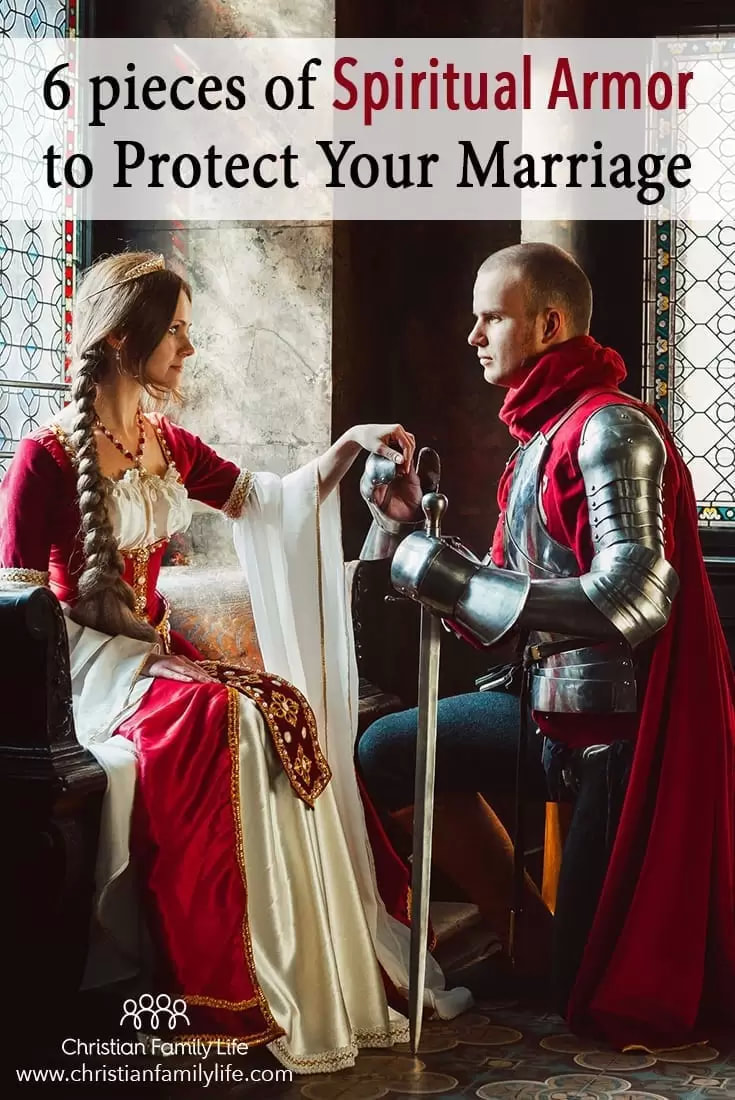|
In This Article What is a healthy relationship? Why are healthy relationships important? 20 benefits of healthy relationships People are born with the ability to form close relationships. The need to connect and establish relationships is biologically supported and evolutionarily significant. The innate tendency speaks the importance of relationships for a person’s life- evolutionary, physically, and psychologically. Our tendency to build close relationships was and is adaptive. The benefits of healthy relationships are abundant and reinforce further our desire to connect with others. Before we move to list the benefits of healthy relationships, let’s define what we infer by healthy relationships. What is a healthy relationship?Having a healthy relationship means having interdependence, relying on one another without losing one’s own individuality and identity. Depending on the type of relationship and the people involved, different amounts of dependency are described as healthy. This will also vary depending on the life stage of your relationship. For example, it is expected to need more interdependence than usual when pregnant, ill or stressed. A healthy relationship is one in which both parties are respectful, communicating, and investing in the relationship. It is one where both can find comfort, encouragement, challenge each other in a productive way, and have individual, as well as shared, goals. Healthy, positive relationships don’t exclude the experience of conflict and arguments. All love relationships are subject to disagreements, but people communicate on overcoming them because the relationship is worth it to both sides. Why are healthy relationships important?Many studies have explored and captured the benefits of healthy relationships on health, habits, and mental well-being. Not only do they permit us to have a sense of community, belongingness, and support, they also give an opportunity to grow and learn. When we have a healthy relationship, we communicate, care for another person, and depend on them too. This helps us evolve and, with the model of a healthy relationship in mind, work on improving other less healthy relationships or our expectations. If you are trying to respond to “why are relationships important,” look for the answer in the immense benefits of healthy relationships. Let’s elaborate more on the key positive effects of relationships on people’s lives. 20 benefits of healthy relationships Following are the benefits of healthy relationships and why they are good for you. 1. Better physical health Social relationships, their quantity, and quality have important short and long-term effects on one’s health, and that impact starts in childhood. Being in a healthy marriage has a positive effect on one’s health, especially for men. This effect only exists for healthy relationships, where partners are respective and appreciative of one another. The research found that unhappy or toxic relationships have a higher negative influence on health compared to people who are single. It could be that a spouse is helping reduce the impact of stress and provide support. We can also hypothesize that a spouse helps get rid of bad habits and thus improve health. Regardless of the mechanism, the benefits of healthy relationships include lower blood pressure and a boost in the immune system. 2. Longer life Social connections are also relevant to our longevity. Although the actual mechanisms through which healthy relationships exhort influence are yet to be explained, the fact remains that social isolation is one of the major risks of mortality. A meta-analysis of 148 studies concluded that social relations should be included in the list of risk factors for mortality, along with smoking and alcohol abuse. They deserve this place due to the amount of influence they hold, exceeding factors such as physical inactivity and obesity. 3. Decreased stress CONTINUE...https://www.marriage.com/advice/relationship/benefits-of-healthy-relationships/
0 Comments
Joe Wright was the Senior Pastor of Central Christian Church in Wichita, Kansas.
On January 23, 1996 during the presidency of Bill Clinton, Pastor Wright gave an epic prayer that stirred some interesting reactions. It was not what people were expecting to hear. You can listen to his speech HERE or read it below. “Heavenly Father, we come before you today to ask Your forgiveness and to seek Your direction and guidance. “We know Your word says, ‘Woe to those who call evil good,’ but that is exactly what we have done. We have lost our spiritual equilibrium and inverted our values. “We confess that we have ridiculed the absolute truth of Your word in the name of moral pluralism. “We have worshiped other gods and called it ‘multiculturalism.’ “We have endorsed perversion and called it ‘an alternative lifestyle.’ “We have exploited the poor and called it ‘a lottery.’ “We have neglected the needy and called it ‘self-preservation.’ “We have rewarded laziness and called it ‘welfare.’ “In the name of ‘choice,’ we have killed our unborn. “In the name of ‘right to life,’ we have killed abortionists. “We have neglected to discipline our children and called it ‘building esteem.’ “We have abused power and called it ‘political savvy.’ “We’ve coveted our neighbors’ possessions and called it ‘taxes.’ “We’ve polluted the air with profanity and pornography and called it ‘freedom of expression.’ “We’ve ridiculed the time-honored values of our forefathers and called it ‘enlightenment.’ “Search us, oh God, and know our hearts today. Try us, and show us any wicked in us. Cleanse us from every sin, and set us free. “Guide and bless these men and women who have been sent here by the people of Kansas and who have been ordained by You to govern this great state. “Grant them Your wisdom to rule, and may their decisions direct us to the center of Your will. “I ask it in the name of your son, the living savior, Jesus Christ. Amen.” The response was immediate. A number of legislators walked out during the prayer in protest. In 6 short weeks, the Central Christian Church, where Rev. Wright was pastor, logged more than 5,000 phone calls with only 47 of those calls responding negatively. The church began receiving international requests for copies of this prayer from India, Africa and Korea. With the LORD’S help, may this prayer sweep over our nation and WHOLEHEARTEDLY become our desire so that we again can be called “ONE NATION UNDER GOD.” Pastor Write retired in 2006. The words from his 1996 prayer still ring true in 2022. “God is still in control” and giving them a stern warning about God’s judgement. “The Supreme Court makes its decisions based on the Constitution, debating the constitutionality of any particular issue. But I must warn you, God does not judge you by the Constitution. He judges you by the Word of God. So while the Supreme Court is looking at the Constitution, you better search the Scriptures …,” – Bishop T.D Jakes With terrorist attacks, dangerous dictators, and senseless murders all around us, sometimes it feels like the whole world has gone crazy … and maybe it has.
But God is still on His throne! Even when the battles rage and death seems to be all around us, God is still in sovereign control. As I raise my family in this world of upside down values and unprecedented media coverage, I remember the words of Jesus, “… Let this cup pass from me; nevertheless, not as I will, but as you will” (Matthew 26:39). Oftentimes, it is God’s will that His people pass through the fire of suffering and trials, even persecution. But He promises victory on the other side. He promises to go with us into the fire, and to provide a way through. So how do we practically walk the path of stability in an unstable world? Here are a few suggestions: First, make your spiritual life a priority. Learn to pray. Don’t just bow your head and mumble a few words and call it prayer—get down on your knees and cry out to God! Fervently, humbly, regularly. God listens to our prayers when we are desperate for His grace and mercy. Live righteously. James 5:16 (NKJV) says, “The effective, fervent prayer of a righteous man avails much.” How are we going to pass on a faith to our children that they have never been exposed to? It must be deep and sincere and pour out of us like life’s blood. If we don’t bleed the message of Christ, then we aren’t taking our faith seriously enough. Go to church as a family and really worship—thank God, praise God, tell Him you love Him, think about what you’re doing there, and then do it with joy! In the words of King David, “I was glad when they said unto me, ‘Let us go to the house of the Lord'” (Psalm 122:1). When was the last time you were excited and glad to participate in the corporate worship of God? Church is not only about seeing your friends or participating in the community. It’s about pouring out your heart and soul—giving all the glory—to the one who saved you from hell. Second, make the Word of God central in your home. Jesus said, “Everyone … who hears these words of mine and does them will be like a wise man who built his house on the rock. And the rain fell, and the floods came, and the winds blew and bear on that house, but it did not fall, because it had been founded on the rock” (Matthew 7:24-25). If your home is not standing on the teachings of the Bible, you will never have assurance or abiding peace. That is a privilege only for those who build their homes on those principles. CONTINUE... https://www.familylife.com/articles/topics/parenting/foundations/spiritual-development/keeping-your-family-stable-in-an-unstable-world/ My marriage vow kept me from making a grave mistake. Without it, I would have lost a lifetime of love. This special promise is powerful — and we need it for many reasons. If you’re living together but you’re not married yet, consider the power of the vow. I’d been married less than two years and was already contemplating divorce. Had it really been such a short time since my husband, Jeff, and I stood at a church altar and said our wedding vows? In my fancy ivory dress and with 200 family members and friends watching, I’d vowed “till death do us part” to Jeff. I’d promised to stay with him forever: for better or for worse, for richer or poorer, in sickness and in health. And yet there I sat with Jeff, dividing our record collection as I planned to move out. When I married at age 24, I hadn’t surrendered my life to Christ, and God was not part of my life. Consequently, I knew nothing about true love. When I found myself physically attracted to another man and realized he was attracted to me, I was confused. How could I love my husband and be attracted to this other man? I didn’t know the difference between unconditional love and pure physical attraction. Because of my lack of knowledge, I thought I’d made a mistake by getting married. Never mind that I still considered Jeff my best friend and respected him as a person. Never mind that I still loved him. Even though I was obsessed with this attraction to another man, and even though I was accustomed to following my feelings wherever they led me, two things saved me from making a life-altering mistake: a Christian book in our apartment that explained the true meaning of love … and the wedding vow I’d made. And of course, God was reaching out to me through that book and the vow. I still remember staying up all night reading the book Jeff’s mother had given him. I’d been packing and getting ready to move out of our apartment when I came across it. Its promise to clearly define love appealed to me. After I’d read it, I looked into the mirror of our apartment’s bathroom and said to myself, I made a vow. It doesn’t matter what I feel at this moment. Feelings come and go. Vows and unconditional love are supposed to stick around. My marriage vow kept me from making a grave mistake. Without it, I would have lost a lifetime of love. This special promise is powerful — and we need it for many reasons. If you’re living together but you’re not married yet, consider the power of the vow. Vows protect youMaybe you’re like the 59 percent of evangelicals ages 18 to 29 who said living together was no big deal — it’s morally acceptable even if the couple doesn’t intend to marry. You say you love each other and don’t see the need for the whole wedding thing . . . at least not right away. You say you’ve made a strong commitment, just not with the marriage trappings? Unfortunately, that isn’t enough because people are inherently selfish and sinful (I know I am!). 1 John 1:8 says, “If we say we have no sin, we deceive ourselves, and the truth is not in us.” Because our worst selves can lead us to make choices we regret, we need the wedding vow to protect us from ourselves. It’s a needed restraint that helps us maintain our commitment. It’s much easier to move out of a person’s life when you haven’t made a public commitment to the relationship in front of your guests, your entire family and, of course, God. Unfortunately, moving out may be a decision that could wreck your life. Proclaiming your commitment — your covenant — through marriage protects you from you. If you’re simply living together, you don’t have the extra accountability, the boundary the vow provides. Most of us can’t even stick to diets without external help. We need the marriage vow to hold us accountable in those times when we want to do the easy thing, the wrong thing, the foolish thing. And when we keep our vows, we give ourselves a chance to grow as individuals and as a couple. I’m living proof that a wedding vow can protect you from foolish behavior and strengthen your relationship. Vows can improve your lifeResearch shows that marriage provides health benefits that living together does not. I know that keeping my vow and staying in my marriage has made me a much happier person. Because I honored my vow, I’ve been dearly loved and cared for by a man who has seen me at my best and my worst. I’ve shared passion, purpose and spiritual growth with the love of my life. I’ve raised four children and shared a business with a man I trust completely, totally. I would have lost all that if the power of the vow hadn’t stopped me from leaving. In fact, I shudder at the thought of what my life would have been like without Jeff. He brought me back to church, which led me to surrendering my life to Christ. My husband’s example of forgiveness and unconditional love for me after I hurt him modeled the love of Jesus. Would I have followed the Lord if I’d chosen divorce? Would I have learned the true meaning of love? Or would I have gone from one man to the next, looking for the fulfillment that only comes from God? Vows strengthen trustIt took a long time for Jeff to trust me again after my emotional affair. But he did, and we decided that affairs and divorce would never again be an option. We could disagree and be extremely angry, storm off somewhere and still know that we could return. Over the years, as we faced unemployment, a traumatized son, our children’s frightening medical emergencies, a low bank account, our son’s suicide and my debilitating health condition, we knew we could depend on each other. Life throws a lot your way. It’s easier to handle it all with someone you trust, someone who has vowed to stay with you no matter what. Without the commitment of marriage, will your trust of each other be strong enough to survive life’s tough seasons? Or do you need the power of the vow? Living together but not married? Try the vowIf you’re living together, you’ve made no vow before God and the world. You have no protection from yourself. You have no basis for trust. Without the benefits of marriage vows, how long will your union last? Thanks to the vow I made, Jeff and I are still married. I’m so glad I made that promise, because it set me up for a happy life filled with love. Our adult son, Ben, even wrote a poem about our marriage that compared our love to ancient Redwood trees, which live for thousands of years. If you, too, want the kind of love that lasts, the kind of love that God designed, make the marriage commitment. If you truly love each other and want to be with each other for the rest of your lives, declare it! Use the power of the vow to safeguard your relationship. Give yourself a chance to grow together for a lifetime, like two redwood trees. © 2021 Focus on the Family. All rights reserved. Originally published on FocusOnTheFamily.com. Making the Right Choices in Marriage ... The Armor of God - Protecting Your Marriage ...With all the unsettling news we see daily about the COVID-19 pandemic, racial tension and protests, and the upcoming election, we are bombarded with situations and circumstances that can leave us feeling anxious and worried. Deborah Pegues offers an insightful look at worry and anxiety, giving us effective ways to deal with the stress they cause and find peace of mind. She’ll encourage us with her humor and heart, calling us to seek God in all we do
With all the unsettling news we see daily about the COVID-19 pandemic, racial tension and protests, and the upcoming election, we are bombarded with situations and circumstances that can leave us feeling anxious and worried. Deborah Pegues offers an insightful look at worry and anxiety, giving us effective ways to deal with the stress they cause and find peace of mind. She’ll encourage us with her humor and heart, calling us to seek God in all we do. Get Deborah's book, 30 Days to Taming Worry and Anxiety: https://bit.ly/37ByYtd For more resources on this topic: https://bit.ly/35ocR6W The term “family values” has become a popular phrase in recent years. These values define what is meaningful to your family—the beliefs and ideas that bind your family together. Different families around the world value different ideals and beliefs, but most families can boil down their primary values to fitting within the following categories. What Are Family Values?
Humans within societal relationships are constantly evolving, and the ideals and standards we care about continue to change over time. The traditional family values of the 1950s are very different from the traditional family values of a post-9-11 American society. Family values are always reflective of their times and environments, yet most cultures surprisingly share several common threads when it comes to basic values and morals. No child is born with a set of values. Children must be taught these values by our families, friends, and larger communities. We continually pass down our values to the next generations, so it’s important to be clear about the things we care about and what we teach our children and grandchildren to care about as well. Your family members will be exposed to many types of values through their friends, co-workers, teachers, and society in general. The more children know about their own family’s values, the better able they are to discuss them with others. Knowledgeable and conscientious children will also be more likely to be respectful of others’ values and family norms. Family Values: The Foundation of a Strong Family Ultimately, your family values will be specific to you and your family unit. They represent the ways you want to live your family life, and they may have been passed down through multiple generations throughout the decades. Knowing what a family–both the nuclear family and extended family–values can help solidify bonds among family members. Family values help kids and young men and women make good choices because they have a set of beliefs to help guide them. Moral Values Moral values often define a core personal ethic that drives how a family–and each parent and child within that family – make their way in society, knowing the difference between “right” and “wrong.” General concepts like kindness, integrity, honesty, generosity, courage, patience, and justice can often be categorized as moral examples that a family may share. In a child’s early years, moral values are shaped primarily by the parents, siblings, and relatives. These morals continue to be refined through exposure to other moral compasses through spiritual training, school, popular culture, and social interaction with others. Taking responsibility for one’s actions is also typically considered a moral value . Personal Conduct and Social Behavior Many times, these values guide the way we treat others and how we stand up for those who need help within society. As part of child rearing and parenthood, we often teach our children that we want them to be “good.” Defining good behaviors and leading by example can go a long way toward making sure those values eventually become intrinsic in our children. Some examples of social behaviors many families care about include being a good listener, sharing, and showing empathy to others, along with a concern for their welfare. When it comes to our closest relationships, our values can help shape what it means to be a good husband, a good wife, a good parent, and a good sibling. Values give us a roadmap to developing healthy relationships. Social behavior values shape the manner in which we conduct ourselves in personal interactions and as productive members of a greater society. Showing respect for women, elders, and authority figures, treating people with kindness, and standing up for those who can’t stand up for themselves are often key behavioral values for families. These values help teach children to keep their composure when things don’t always go their way, which can foster patience and resilience. Spiritual and Religious Values Some of the strongest families share a belief in something greater than themselves. They find spirituality to be a significant source of family strength. Spiritual and religious values can vary widely, depending on the family, but many faith traditions tend to share common moral values. Compassion is often associated with spiritual and religious values, as is the desire to grow in faith and knowledge. Spiritual and religious values can also influence other values–like moral values and social behavior. For example, many young men and women of Christian faith may follow specific guidelines for Christian dating in order to foster a relationship that’s consistent with their faith. Most faith traditions also emphasize service, prayer, and community fellowship, so these may all be qualities a family holds dear if spiritual and religious values are at the center of its values. At the heart of most spiritual and religious value systems is the importance of worship and fellowship, so spending time with others in your faith community can help solidify your family’s spiritual and religious values. And whatever your faith tradition, belief in a higher power and the promotion of spirituality can provide your family with a sense of direction and unity. Our spiritual values can guide everything from our approach to marriage and parenting to how we value friendship and how we care for others within our communities. Family Work Ethic Many families consider a strong work ethic to be an important family value. A family’s work ethic can shape everything from the way a child views schoolwork to the way everyone in the family approaches their careers, their finances and working together as part of a team. Achievement is a key element of a strong work ethic, and many families focus on achieving success–as they define it–through their professional work. Contributing to the family’s success through everything from chores to weighing in on family decisions can help a household learn how to function effectively as part of a family unit–with the welfare and success of the group outweighing individual success. Volunteerism is a work ethic that is more than simply working hard. The concept of volunteering one’s time and talents is a key work ethic value for some families. Families strengthen their relationships, learn new skills, and teach each other the value of hard work by setting time aside to volunteer together. When family members spend quality time together finding creative solutions to challenging tasks, to the benefit others, they create life-long family memories that form the foundation of the family values they pass on to their descendants. These families value work that matters most and supports the greater good–not work that simply provides a paycheck. They’re moved to serve a higher goal through their work, and this value remains central to how they decide fields of study, careers, and professions. Educational Values Most research indicates that a good education can help ensure a more stable and enjoyable life. For many families, the chance at a good education is a priority that drives many family decisions. And with education comes the idea of lifelong learning–it isn’t only about the importance of school. Typically, families who value the idea of education also value intrinsic qualities like curiosity and ambition. They appreciate the desire to constantly learn more about the world and to acquire the level of knowledge needed to achieve the goals they set for themselves. Families who hold education as a key value may read together, and in general, invest heavily in books. They may visit museums, libraries, and lectures together or even take classes together within their communities when possible. Family Time It may seem like a given that all families prioritize family time, but this isn’t always the case. Especially as children get older, reaching their teenage and young adult years, it can be important to prioritize family time as a key value for your family. Family time looks like many different things for different families–maybe it’s planning at least one family vacation together every year, or scheduling a family game night or movie night each week. Many families insist on at least one meal together as a family every day. And for some families, the practice of a regular family meeting is a way to ensure quality family time together, discussing major issues and decisions that affect the whole family. Spending time together encourages companionship, strengthens a marriage, and helps form stronger bonds between siblings and the entire family. There are so many different, creative ways to carve out family time. Let your family know that spending time together is a priority–everyone should be willing to adjust schedules and make time to simply be together, preferably engaging in an activity everyone finds fun and/or relaxing. Doing activities together creates both powerful bonds and powerful memories–two important components of a strong family life. One way to improve family time and family relationships is to identify each family member’s love language–you can easily find this out by taking the love language quiz. And don’t forget, it’s important for married couples to spend time together alone on a regular basis in order to nourish their marriage. Family Traditions For many families, traditions are an important value. Some families have traditions that have been passed down for decades. Participating in the same formal or informal rituals and observances is a powerful way to link your family together. Whether it’s attending the Christmas Eve candlelight service each year, cooking hotdogs for the neighborhood every Halloween, or staging a pajama dance party to celebrate good report cards, the traditions you observe with your family can create powerful memories. They elevate even everyday experiences to something extraordinary and help hold the family together over time. Financial Values Many families place a high priority on using their financial resources in ways that help them live out their economic values. This includes setting careful guidelines for how much money to spend, how much should be regularly saved, and how much should be used for tithing and philanthropic purposes. In addition, families sometimes set guidelines for exactly how they want to spend their money. For example, some families may consciously decide to spend their money on experiences, rather than things–choosing to use their economic resources on adventure and travel rather than expensive gadgets, fancy houses, and new cars. Other families may decide that the best use of their resources is to champion social justice causes and to invest in philanthropic organizations–both in their communities and around the world. Many families give significant financial resources to their church, being disciplined about how they allocate their economic resources within the faith community. All these approaches express a certain type of family values–and it’s easy to see when people live out their values through their financial choices. Family Health and Fitness Families differ in their approach to health and fitness. For some families, diet and exercise are of utmost importance, while other families don’t necessarily share this value. Many families approach health and fitness as a family affair–cooking healthy dinners together, for example, or going on family hikes or bike rides. This allows a family to enjoy quality family time while engaging in a healthy recreational activity. These kinds of values help teach children and young people how to take care of themselves and their health later in life while allowing for a family to make powerful and valuable memories together. Participating in recreational activities allows families to connect with each other–and often with nature as well. Spending time outdoors together in a healthy activity gives families time to talk to each other without the distractions that their day-to-day life typically affords–like jobs, school, political issues, and the internet. Exercise is important for both physical and mental well-being, so making this a priority for your family can help instill those values for years to come. Family Entertainment (TV, Movies, Internet, Music, etc.) How does your family have fun together? Entertainment values are an important part of the fabric that constitutes your family life–and the memories you make for your family, especially while your children live at home. Do you play board games together on weekends and holidays? Watch the latest superhero movie when it hits the theater? Listen to a particular type of music during dinner or on long road trips? Establishing that your children can have fun and enjoy appropriate entertainment with you and your entire family goes a long way toward helping them define and live their own entertainment values well into the future. What’s the Difference Between Family Values and Family Culture? Family values and family culture are closely related, but there are some significant differences. Values are intrinsic and deeply held, while family culture is more of the outward display of your family’s personality and, yes, beliefs as well. Values are expressed in your family culture, and vice versa. For example, your family culture may be welcoming and fun-loving, while the values associated with that include community and hospitality. If your family holds dear the idea of welcoming others into the fold and making them feel appreciated, then it’s likely that your family culture will reflect that through feeling warm, friendly and inviting to others. Think about it like this: Your values indicate the core beliefs that you hold dear, while your family culture is an outward manifestation of those values–it’s how you live them. In other words, people should be able to infer your values by the way they experience your family culture. Want to identify your family culture? Take a unique family culture assessment by Kinmundo.com, the family culture specialists, To find out which one of the 16 different family cultures your family belongs to. Each family member independently takes the quiz. The combined quiz results provide insights on how to improve family relationships that strengthen family values. Which Family Values Are a Priority For Your Family? Many families have not formally defined their core family values. If you haven’t yet gone through the exercise of setting priority family values, it’s a worthwhile exercise, and it’s never too late to start. Doing so might seem intimidating or overwhelming, but you’ll be glad you did it, and overall, it really isn’t that difficult. To start, you can call a family meeting and gather input (and even some debate) from everyone in your family about what’s important to him/her and what they think your family should prioritize as values overall. You could start off with a family mission statement–many families find success going this route. What kind of statement best defines what your family stands for and wants to achieve in the world? How would you like your family to be known and regarded within your community? For some families, a strong work ethic is most important. For others, it’s kindness or a life of service, and for others, it may be exploration and adventure. Take the time to get input from all family members about what you share in terms of core family values and then put those into your mission statement. Talk about your strengths and weaknesses as a family–what do you do well, and where is there room for improvement? These are great places to start in defining how your family both fits into and stands out from your specific culture and within your society. What words and phrases can describe your family as a group? If you need inspiration, you might want to explore Bible verses about family or consult other books about faith and values. If you really get stuck, you can also find several values-based kits and activities on the market that provide exercises, questions, and tips about parenthood. They can help guide your family toward defining the values that are most meaningful to you as individuals and as a group. Above all, your list of family values should reflect your family–it should be like no one else’s. If your faith and spirituality are key to your family goals, then your list should reflect that. If you want to travel with your family and see as much of the world as possible, then it’s one of your family values. And if you’re a family driven by social justice and service to the community, your list of values should reflect that, too. There’s no one right way to develop a list of values, and each family has a different set of values and political opinions. Happy families can be liberal or conservative, Republicans or Democrats, each with a unique set of values. In fact, a diversity of family values helps build stronger communities that work and live together in peace and happiness. Importance of Family Values Our family values help us shape our own personal values and morals–which in turn helps define who we are and how we make our way in society. When parents demonstrate that family values are important, a child gets the structure and boundaries needed to find his or her own place within those values and morals. Or, as the child gets older, to modify those values in order to make them unique as the child matures and develops into a values-driven adult. Through values-based family life, our children learn to express themselves, to grow from their mistakes, to problem-solve and to develop all the abilities and skills that help them become productive members of the community. It’s helpful to openly discuss family values that are important to you and your children in order to clearly define those family values you believe to be important. And once you’ve identified your family values, you’re far from finished–next comes the more complicated task of living and exemplifying each value. Because our beliefs and our identities are closely intertwined, you may also want to re-evaluate your family values over time, to allow everyone’s input into whether something you hold dear as a family remains a positive influence over everyone and shapes their behavior in a meaningful way. Don’t let your daily routine and the status quo get in the way of intentionally building strong and meaningful family values. Start with a family mission statement and weekly family gatherings to discuss important family topics. Write down and document what is important to your family. If you don’t already have a defined set of family values, remember, there’s no right or wrong way to go about forming and documenting family systems that help guide your family values. If you don’t have well established value systems in your family, then it’s time to get started. Go forth, act intentionally and have conversations that will help your family define and live your family values. Learn More |
Family ValuesWhat are family values and why are they important? Archives
January 2024
Categories
All
Keeping Your Family Stable in an Unstable World |
Copyright © 2009 -24
All Rights Reserved Life's Precious Vows I PreciousVows.com I Precious Vows Ceremonies Wedding Blog, Precious Vows Elopements I Precious Vows Ceremonies
All material on this site is protected under the copyright laws of the United States for the express protection of their creators.
PreciousVows TM
Common Law Copyright © 2000-2024 All Rights Reserved.
Without Prejudice and Without Recourse
All Rights Reserved Life's Precious Vows I PreciousVows.com I Precious Vows Ceremonies Wedding Blog, Precious Vows Elopements I Precious Vows Ceremonies
All material on this site is protected under the copyright laws of the United States for the express protection of their creators.
PreciousVows TM
Common Law Copyright © 2000-2024 All Rights Reserved.
Without Prejudice and Without Recourse
LEGAL NOTICE: Scraping Notice: By accessing/using this website, be it Human, AI,or Bot,, Agency / Responsible Party/Parties or Otherwise, You Agree To and Are Legally
Bound by the Terms and Conditions Set Forth.
Read Carefully: If you do not agree to / with the Terms and Conditions Do Not Access/Use this website.
Bound by the Terms and Conditions Set Forth.
Read Carefully: If you do not agree to / with the Terms and Conditions Do Not Access/Use this website.





 RSS Feed
RSS Feed

